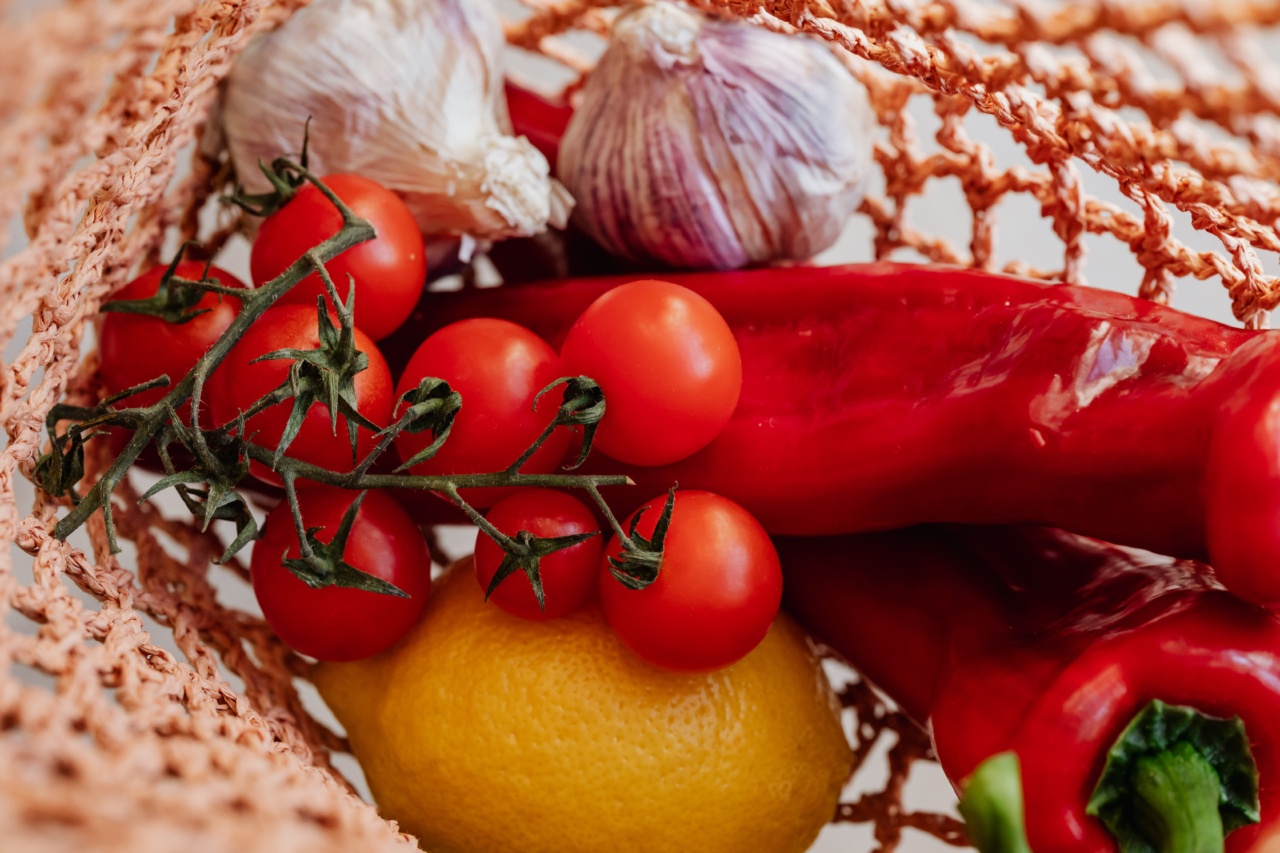When it comes to reducing the risk of cancer, adopting a healthy lifestyle and making smart dietary choices can play a crucial role.
While no single food or nutrient is guaranteed to prevent cancer, a well-balanced diet rich in certain foods can help boost your immune system and minimize your chances of developing this deadly disease. Here are the top 10 nutritional ways to reduce your risk of cancer:.
1. Increase Your Intake of Fruits and Vegetables
Fruits and vegetables are packed with essential vitamins, minerals, and antioxidants that help eliminate harmful free radicals from your body. These free radicals can damage cells and DNA, leading to the development of cancer.
Aim to include a variety of colorful fruits and vegetables in your diet, such as berries, leafy greens, cruciferous vegetables (like broccoli and cauliflower), and citrus fruits.
2. Incorporate Whole Grains
Whole grains, such as brown rice, quinoa, whole wheat bread, and oats, are excellent sources of fiber and other important nutrients. Consuming whole grains regularly can reduce the risk of cancer, especially colorectal cancer.
Make sure to choose whole grain products over refined grains for maximum health benefits.
3. Limit Processed Meats
Processed meats like bacon, sausages, and deli meats have been strongly linked to an increased risk of cancer, particularly colorectal cancer.
These meats often contain high levels of preservatives, additives, and sodium nitrite, which can have harmful effects on your health. Opt for lean sources of protein, such as poultry, fish, and legumes, instead.
4. Choose Plant-Based Proteins
Red meat consumption has been associated with an elevated risk of certain cancers, including colorectal and prostate cancer.
To reduce this risk, consider replacing some of your meat-based meals with plant-based proteins, such as tofu, tempeh, beans, lentils, and nuts. These plant-based proteins not only provide essential nutrients but also contain fiber and antioxidants that can help protect against cancer.
5. Consume Healthy Fats
Including healthy fats in your diet can be beneficial for cancer prevention. These fats are found in foods like avocados, olive oil, fatty fish (salmon, mackerel), nuts, and seeds.
Healthy fats contain omega-3 fatty acids, which possess anti-inflammatory properties that may lower the risk of certain cancers, including breast and prostate cancer.
6. Minimize Sugar and Processed Snacks
Avoiding excessive sugar and processed snacks is crucial in reducing the risk of cancer. These foods are usually high in calories, low in nutrients, and can contribute to obesity and chronic diseases, including cancer.
Instead, opt for healthier alternatives like fresh fruits, homemade snacks, and natural sweeteners like honey or maple syrup in moderation.
7. Include Cruciferous Vegetables
Cruciferous vegetables like broccoli, cabbage, cauliflower, brussels sprouts, and kale contain a compound called sulforaphane that has been shown to have cancer-fighting properties.
These vegetables are also rich in fiber, vitamins, and minerals, making them an excellent addition to your cancer-preventive diet.
8. Drink Green Tea
Green tea has gained significant attention for its potential cancer-fighting properties.
It is rich in antioxidants and polyphenols, which may help inhibit the growth of cancer cells and reduce the risk of several types of cancer, including breast, colon, and prostate cancer. Enjoy a cup or two of green tea daily as part of your healthy beverage choices.
9. Get Sufficient Vitamin D
Vitamin D plays a crucial role in protecting against cancer by regulating cell growth and reducing inflammation. Spend some time outdoors in sunlight to boost your natural vitamin D production.
Additionally, include vitamin D-rich foods like fatty fish, fortified dairy products, and egg yolks in your diet. Consult with your healthcare provider to determine if you need vitamin D supplements.
10. Stay Hydrated with Water
Water is essential for overall health, including cancer prevention. Staying hydrated helps flush out toxins from your body and ensures the proper functioning of cells.
Make it a habit to drink an adequate amount of water each day and limit the consumption of sugary beverages that offer little to no nutritional value.
Conclusion
While there is no guaranteed way to prevent cancer, adopting a healthy lifestyle and incorporating these top 10 nutritional strategies can significantly reduce your risk.
Remember to consult with a healthcare professional or a registered dietitian to tailor your dietary choices according to your specific needs and health condition. By making informed decisions and prioritizing a nutrient-dense diet, you are taking proactive steps towards safeguarding your long-term health.



























